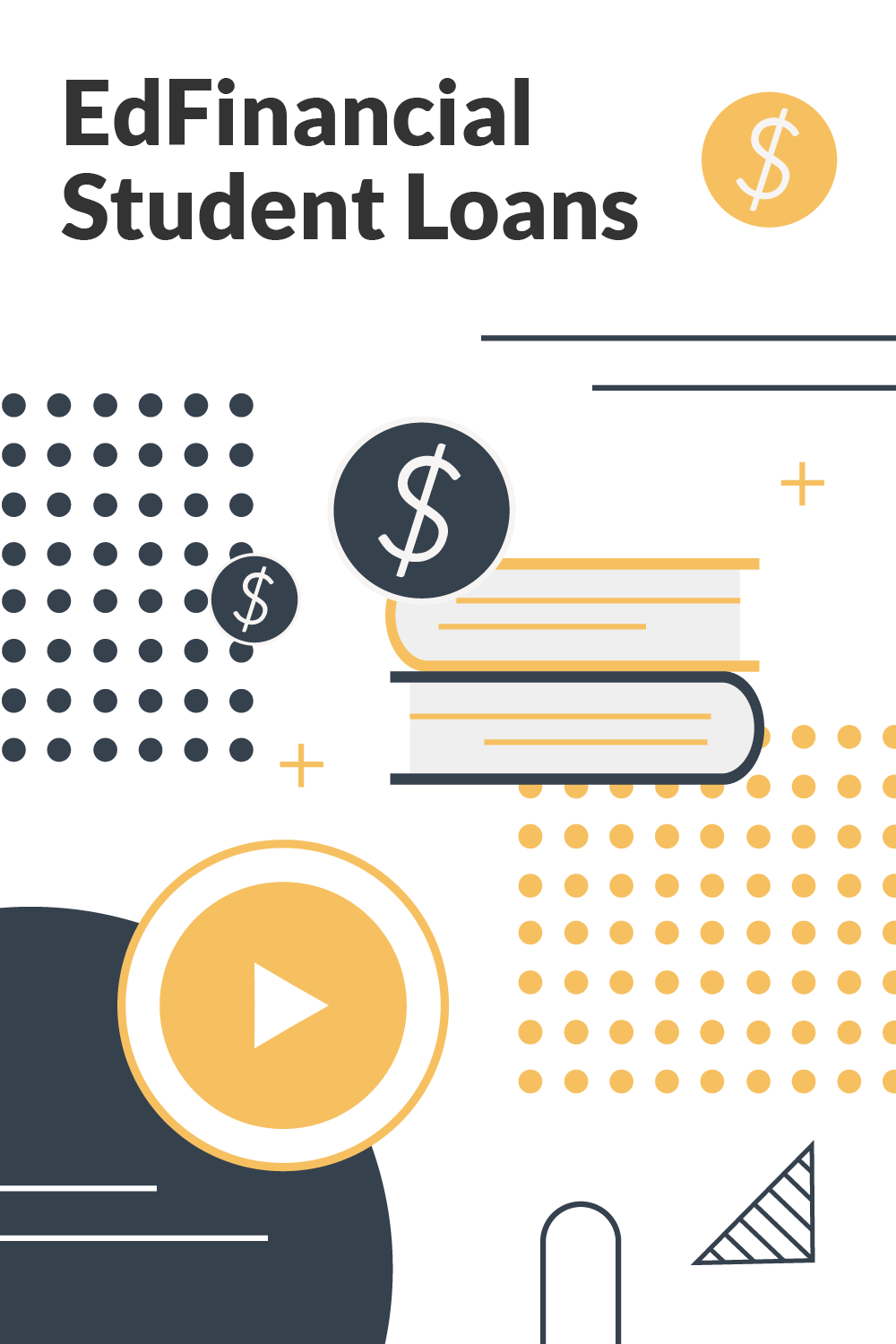
EdFinancial is one of four remaining student loan servicers that handle Federal Direct Student loans. As they've grown over the last few years, they've also been subject to their fair share of issues.
Today, EdFinancial has over 4 million student loans that it manages for the Federal government.
If you need help with your EdServicing Loan, or don't know what is the best option to take with your student loan, keep reading below!
Who Is EdFinancial Loan Servicing?

HESC/EdFinancial (also known as just EdFinancial, and formerly known as ESA/EdFinancial) is a student loan servicer based out of Knoxville, Tennessee. They have been servicing student loans for over 25 years.
In 2012, the federal government awarded them a contract to service federal student loans.
Today, their Federal loan servicing portfolio is over $100B, and they manage the accounts of 4.25 million student loan borrowers.
How To Find Your EdFinancial Loans
If you have loans at EdFinancial, you can access your loans on their portal: https://edfinancial.studentaid.gov/
All of the main student loan lenders now have official "studentaid.gov" URLs, to make sure that borrowers know they are on an official Department of Education website.
If you don't know how to find your student loans, check out this guide: How To Find Your Student Loans.
Top Problems With EdFinancial Loan Servicing
EdFinancial has its fair share of consumer complaints that have been posted publicly on the Consumer Financial Protection Bureau website, the Better Business Bureau website, and other places around the web.
However, while the responses to complaints are not visible on some sites, EdFinancial does seem more responsive to these public complaints than other servicers.
All responses to complaints on the CFPB website were deemed timely. On the BBB website, EdFinancial responded to every single customer complaint in great detail. For BBB complaints, EdFinancial provides play-by-play details of the interactions with the consumers and explain why they did or didn’t do certain things.
Whether these responses are satisfactory to the consumer is a different story. Many BBB complaints were still marked by consumers with “unsatisfied with the response.” While a detailed response is better than nothing, the responses may not have addressed the problem at hand.
It is difficult to tell in the CFPB complaint database whether the responses by EdFinancial were deemed acceptable by the consumer since detailed responses are not available.
That being said, we are going to highlight some complaints that we saw that were significant or troubling. They might be one-off scenarios or they might speak to underlying issues within EdFinancial.
1. Loans Transferred From EdFinancial To Another Servicer Being Reported Incorrectly
One of the unpredictable parts about loan repayment is that your loan servicer can switch anytime. You will be notified of the change, but you have no control over whether it happens or not. That’s because your debt is owned by someone else — and they can pick which servicer they send you to – and only owed by you.
A few problems resulted from switches from EdFinancial to other servicers. In one case, after a borrower’s loans had transferred away from EdFinancial, EdFinancial reported to the credit bureaus that the loans were delinquent. After a simple transfer, this borrower’s credit tanked because of seemingly false reports from EdFinancial. The new servicer was reporting the loans as being current.
Another customer got transferred to a new servicer during their in-school deferment period. Apparently EdFinancial reported the loans as delinquent because they did not accept proof of the need for deferment. The new servicer, however, accepted the deferment and, according to the consumer, was reporting the loans as current.
In both examples, it’s hard to decipher why EdFinancial reported any of the loans as delinquent. It may be a case of inaccurate reporting on EdFinancial’s end, regardless of the transfer to the new servicer. However, it could speak to an underlying issue of uneven reporting practices or forbearance and deferment practices across multiple servicers. Since these are federal loans, these practices should be consistent.
2. Slow Customer Service
An income-based repayment (IBR) plan might be a necessary tool for someone to stay in good standing with their loan. Especially if they experience a sudden change in their financial situation, their good loan status may be in jeopardy if they do not immediately file an application. However, a slow IBR application process may throw a wrench in the relief plan, even if the borrower was quick to act.
A borrower filed an IBR application quickly after she lost her job and EdFinancial accepted her application. The next year, however, EdFinancial rejected her recertification. The borrower believed this was an incorrect rejection, especially because she was on food stamps, Medicaid, and happened to be 9 months pregnant.
But when the borrower asked for more information to properly complete the application, EdFinancial’s replies were slow or incomplete. This delay may have prolonged a forbearance period she did not intend to have, or simply made it much more difficult to pay her loan.
Given she was 9 months pregnant, it seemed like urgency was key and EdFinancial’s customer service did not serve in the way she required.
3. Excessive Collections Calls
While incomplete information or slow reactions from customer service can be frustrating, sometimes too much contact from a servicer is equally frustrating.
One complaint is from an ex-spouse of an EdFinancial borrower. The borrower was likely delinquent or in default on their loans and EdFinancial was attempting to collect from them. The complaint says EdFinancial was calling the ex-spouse many times in an attempt to reach the borrower.
After repeated phone calls, the ex-spouse asked to be taken off the call list as they had no involvement in this debt. At the time of the writing, EdFinancial had refused and kept calling.
4. Misapplication Of Loan Payments
Many borrowers complain about their loan payments not going towards the principal. Student loan rules — at least for federal loans — require that all outstanding interest and fees be paid first, then the principal is paid.
However, one complaint about EdFinancial goes beyond the question of whether interest or principal is being paid and instead addresses misapplication of payments meant to target specific loans. Consumers are allowed to specify where any extra payments go.
First, the borrower wanted to pay off their higher-interest loan. After calling to ask about the necessary steps to achieve this, customer service directed the borrower to do this via EdFinancial’s online payment service, Kwikpay.
The customer service rep also had to make several manual adjustments in order to target the specific loan. The borrower said they were on the phone with the rep for over 20 minutes as they made these adjustments. However, when the borrower later checked after the payment went through, the payment had been applied to two loans instead of just the one.
EdFinancial publicly followed up with this complaint. They said the first customer service rep had been misinformed and the proper allocation had been completed.
How to Contact EdFinancial Customer Service
You can reach EdFinancial customer service through the following:
Phone number: (855) 337-6884
Hours of Operation:
Monday 8:00 a.m. - 9:00 p.m.
Tuesday - Wednesday 8:00 a.m. - 8:00 p.m.
Thursday - Friday 8:00 a.m. - 6:00 p.m.
General mailing address:
Direct Loans:
Edfinancial Services
P.O. Box 36008
Knoxville, TN 37930-6008
FFelp or Private Loans:
Edfinancial Services
P.O.Box 36014
Knoxville, TN 37930-6014
Address for sending payments:
Direct Loans:
US Department of Education
P.O.Box 790322
St. Louis, MO 63179-0322
FFelp or Private Loans:
Edfinancial Services
Department 888055
Knoxville, TN 37995-8055
Email/online contact form: Contact form
Final Thoughts
While your loan servicer is one resource to fix student loan problems or answer questions, they're not your only option.
For some borrowers, consulting with a third-party student loan advisor could help with finding the best income-based repayment plan or with deciding if refinancing their student loans would be a smart choice.
If you decide to go with a third party company, make sure that you do you due diligence before working with any firm. We recommend The Student Loan Planner to help you put together a solid financial plan for your student loan debt. Check out The Student Loan Planner here.

Robert Farrington is America’s Millennial Money Expert® and America’s Student Loan Debt Expert™, and the founder of The College Investor, a personal finance site dedicated to helping millennials escape student loan debt to start investing and building wealth for the future. You can learn more about him on the About Page or on his personal site RobertFarrington.com.
He regularly writes about investing, student loan debt, and general personal finance topics geared toward anyone wanting to earn more, get out of debt, and start building wealth for the future.
He has been quoted in major publications, including the New York Times, Wall Street Journal, Washington Post, ABC, NBC, Today, and more. He is also a regular contributor to Forbes.
Editor: Clint Proctor Reviewed by: Chris Muller
